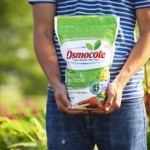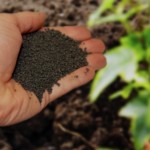Do your blueberries seem a bit lackluster? Are they not reaching the peak of their flavor potential? The secret may lie beneath the surface – in your soil’s pH level. In this article, we’ll explore the art of making soil acidic for blueberries, ensuring your harvest becomes a symphony of sweetness.
Why Does Soil pH Matter for Blueberries?
Before we embark on the adventure of acidifying soil, let’s demystify why it matters for our beloved blueberries. Blueberries, nature’s little jewels, have a specific taste for acidity. They thrive in soil with a pH range of 4.0 to 5.0. This optimal acidity level allows these berries to unlock essential nutrients efficiently, resulting in healthier plants and, ultimately, juicier, more flavorful blueberries.
So, if you’ve been wondering why your blueberries aren’t as vibrant as you’d like them to be, it might be time to check in on the pH balance of your soil. Fortunately, adjusting it to suit your blueberries’ taste buds is easier than you think!
The Art of Making Soil Acidic
1. Soil Amendments
Imagine giving your soil a makeover – a makeover that leaves it perfectly suited for blueberry bliss. Your go-to tools for this transformation are soil amendments. But which ones are the best?
a. Pine Needles: Nature’s Carpet
Picture a forest floor, covered in a soft blanket of pine needles. Now, bring a piece of that woodland charm to your garden. Pine needles, rich in acidity, make for an excellent soil amendment. They not only lower the pH but also provide a natural aesthetic to your blueberry patch.
b. Peat Moss: The Soil Whisperer
Peat moss is the silent hero of acidifying soil. Its ability to retain moisture while gradually releasing acidity makes it a favorite among blueberry enthusiasts. As a bonus, it enhances soil structure, creating a cozy home for your blueberry roots.
c. Elemental Sulfur: The pH Alchemist
Think of elemental sulfur as the alchemist in your gardening toolkit. It works wonders by converting into sulfuric acid, gradually lowering the pH. This controlled transformation ensures a stable and favorable environment for your blueberries to thrive.
2. Watering
Now that we’ve laid the groundwork with soil amendments, let’s talk about the daily ritual of watering. It’s not just about keeping your plants hydrated; it’s about infusing that H2O with a dash of acidity.
a. Rainwater: Nature’s Elixir
Imagine your blueberries dancing in the rain – a picturesque scene, isn’t it? Rainwater, being naturally acidic, is a gift from nature to your garden. If you’re lucky enough to catch some raindrops, let them nourish your blueberries. It’s a refreshing drink with a hint of acidity.
b. Vinegar Mix: A DIY pH Boost
For those days when the skies are clear, and rain seems like a distant dream, enter the DIY solution – a vinegar-water mix. Mix a tablespoon of vinegar with a gallon of water, and voila! You’ve got a pH-boosting elixir. Use it during your regular watering sessions to maintain that sweet spot of acidity.
Final Thoughts
In conclusion, cultivating acidic soil for blueberries is a straightforward yet pivotal aspect of successful berry gardening. By understanding the essentials of soil acidity, choosing the right amendments, and nurturing a balanced pH environment, you pave the way for a bountiful blueberry harvest.
Remember, creating the perfect acidic haven for your blueberries is an investment in the future – a future filled with luscious, homegrown berries ready to tantalize your taste buds. So, let the acidity adventure begin, and watch your blueberry bushes flourish! 🌱






